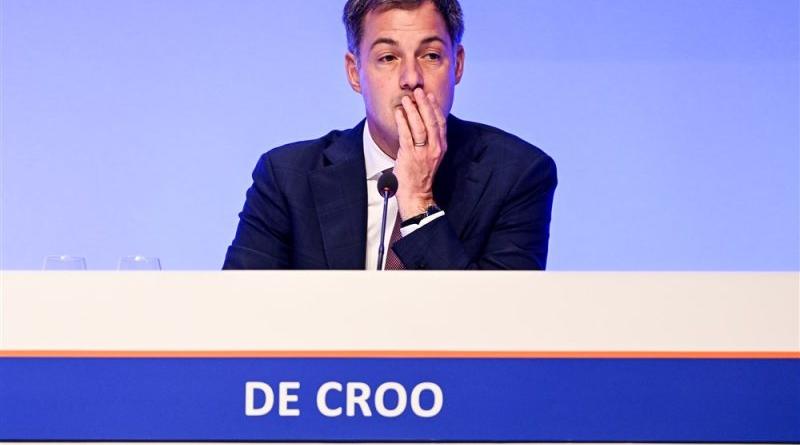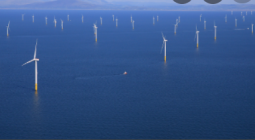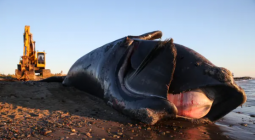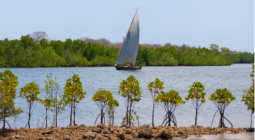Response to De Croo: The story of green growth falls apart

While Belgian Prime Minister Alexander De Croo is promoting the possibility of decoupling economic growth from CO2 emissions, he ignores other planetary boundaries which have already been exceeded, Chloé Mikolajczak, Adélaïde Charlier, Boon Breyne, Sébastien Hendrickx, and Louis Droussin argue.
The authors are Belgian climate and social activists.
Last year, our prime minister spoke at the international climate summit in Egypt attacking climate activists. On Monday, at a conference of a German business club with ties to the Conservative party CDU, he once again raised the rhetorical middle finger. Like French President Macron, he called for a pause in climate and environmental regulations.
De Croo, who likes to portray himself as a reasonable statesman in the run-up to elections he will lose, joins the chorus of European politicians who argue for abandoning the Nature Restoration Act. ‘Let’s not solve everything at once,’ he echoed, arguing the focus should be on the energy transition.
But, the climate and environmental catastrophe is not taking a break, as the Italian droughts and floods show once again. We still wonder how politicians manage to defend a policy of delay.
Is it ignorance? Did De Croo’s policy advisers miss the IPCC and IPBES reports that point to a need to reduce energy and material demand and restore nature to tackle the climate and biodiversity crisis? Did they not hear the latest warnings that we will likely exceed the 1.5° limit as early as 2027? Probably the message that we are already overshooting six of the nine planetary limits by Earth system scientist Johan Rockström did not arrive.
Or is this generation of politicians cynical? What we want and need are real statespeople who finally call a horse a horse and dare to take it by the reins.
Considering more than greenhouse gas emissions and the impacts on other planetary boundaries is where the story of green growth falls apart.
During his speech, De Croo also attacked the Degrowth movement, which gathered last week for the Beyond Growth conference in the European Parliament.
The prime minister obediently parroted the prophets who believe we can decouple economic growth from CO2 emissions. But so far, greenhouse gas decoupling is only relative and much too slow for us to limit global warming to 1.5 degrees, and other environmental stressors like material consumption are much slower to decouple.
On De Croo’s ideal planet, we can first focus on the energy issue, and subsequently neatly solve all the other problems one by one. If only we had that luxury. In reality, besides global heating, there is ocean acidification, disastrous anhilation of biodiversity, chemical pollution and other planetary limits. Indeed, each one makes the other worse.
It’s not just the energy source we use that matters. The question is also what we then use this energy for and what the material impact of more and more energy is.
The Prime Minister also showed a more philosophical side. According to him, “a strategy of less is antithetical to human nature”. But following this logic reduces us to consumers, hoarders even, of as much stuff as possible.
This desire for more consumption is fed to us by an endless stream of advertising, and companies and the riches desire for endless growth. But does this deliver on what makes life good? We would say no.
What does ‘more’ and ‘less’ really mean? Less and more of what and for whom exactly? We want less emissions and pollution, less overconsumption by the ultra-rich, and more clean air, more public services, more wellbeing and more chance for a habitable planet. With De Croo in office, these objectives seem well out of reach.
Chloé Mikolajczak (Climate and Social Activist)
Adélaïde Charlier (Climate and Social Activist, Youth for Climate)
Boon Breyne (Climate and Social Activist, Friends of the Earth)
Sébastien Hendrickx (Climate and Social Activist, Degrowth Belgium)
Louis Droussin (Climate and Social Activist)
cover photo:Belgian Prime Minister Alexander De Croo attended an event in Berlin organised by a business group with close ties to German Christian Democratic Union (CDU) on Monday (22 May) where he called for a focus on reducing greenhouse gas emissions and questioned other environmental legislation. [EPA-EFE/FILIP SINGER]





